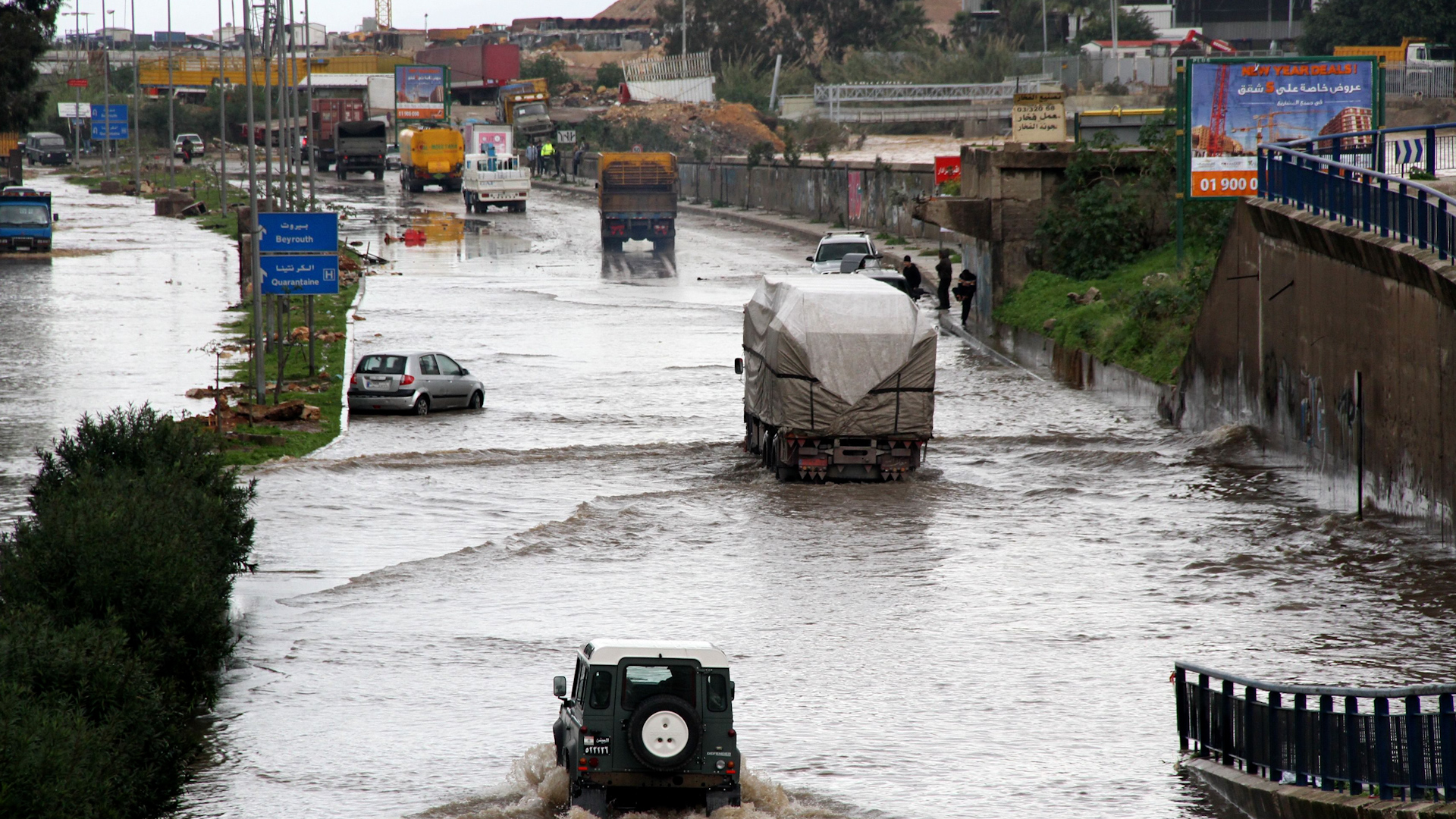Three sporadic rainfalls were enough to cause major flooding across Beirut and its suburbs. Flooding in the capital’s southern suburbs included heavy amounts of waste and sewage piling up and blocking parts of the road.
Water puddles near the Barbir area caused major traffic jams in the morning hours of Wednesday, with commuters noting that they needed up to two hours to arrive at their destinations.
Every year, Lebanon experiences flooding across many of its main streets and highways, due to poor infrastructure and sewage system.
With only a few hours of rain being enough to cause major road blockage and flooding, many have started to ask what awaits the country during the upcoming winter season given the poor state of Lebanon’s infrastructure.
Who is responsible?
Amidst the usual blame game that takes place throughout most crises in Lebanon where different political and state actors point fingers at one another, it’s important first to establish the hierarchy of responsibility involved in such matters.
Beirut Today reached out to urban planner and architect Soha Mneimneh, who explained that primary responsibility in similar incidents rests in the hands of municipalities, the union of municipalities and the Ministry of Public Works.
She explains that in theory, the municipalities of Beirut’s southern suburbs should be working in close coordination through their union.
“The same problem occurs every year,” explains Mneimneh. “From a technical perspective, municipalities or state institutions in general should be conducting preparations before the winter season, which is commonly done in other countries across the globe”.
“There Is No Real Municipal Work”
“[…] Municipalities are not doing their job, which is the case every year and is not related to the [current] crisis. So if anyone claims that they are not able to do maintenance because we have a financial and economic crisis, it’s all lies, because each year we’re witnessing the same scene,” Mneimneh adds.
“There is a lack of sense of responsibility, and not only that, there is incompetence,” Mneimneh emphasizes while explaining that there’s a notable absence of technical skills within municipalities in favor of widespread nepotism, clientelism and favoritism.
What this means is that most municipal employees are not properly trained to take on their tasks, but are hired due to connections – a widespread social fact around Lebanon.
What is needed
Solving the current infrastructural issues requires two sets of actions, explains Mneimneh. The first one is political and consists of replacing those in charge of decision-making.
The second is related to planning, which includes periodic maintenance work, infrastructural improvement, and solving blockers at the level of coordination between different institutions.
“If a certain initiative related to water management was passed by the Ministry of Public Works, it would then be obstructed by the Ministry of Energy and Water, and then it would also be obstructed by municipalities because the people who are within these institutions are not politically aligned,” adds Mneimneh.
Accordingly, reform and personnel replacement should be a wide process encompassing numerous institutions and not limited to one. Such a process requires vast institutional restructuring and a delineation of specific responsibilities.
Mneimneh explains that issues such as water management and infrastructural maintenance go beyond local-level programming, as their impacts reverberate across a wider network.
As such, the current fragmentation of municipal work should be replaced by regional coordination mechanisms rooted in a regional vision for cities and villages.
Beyond technocracy
Maintaining the country’s infrastructure, water management structures and overall environmental and crisis preparedness are matters that often require both political and technical aspects.
Since the onset of the 2019 uprising, calls for a government of technocrats were widely promoted by protesters but also by ruling class actors who proposed a “techno-political” government.
What these technocratic views fail to acknowledge, however, is that environmental crises, similarly to other crises in the country, are firmly rooted in questions of distribution, justice and accountability. These crises don’t affect different parts of the population in an equal manner: those on the marginal ends of policymaking are often the most impacted.


